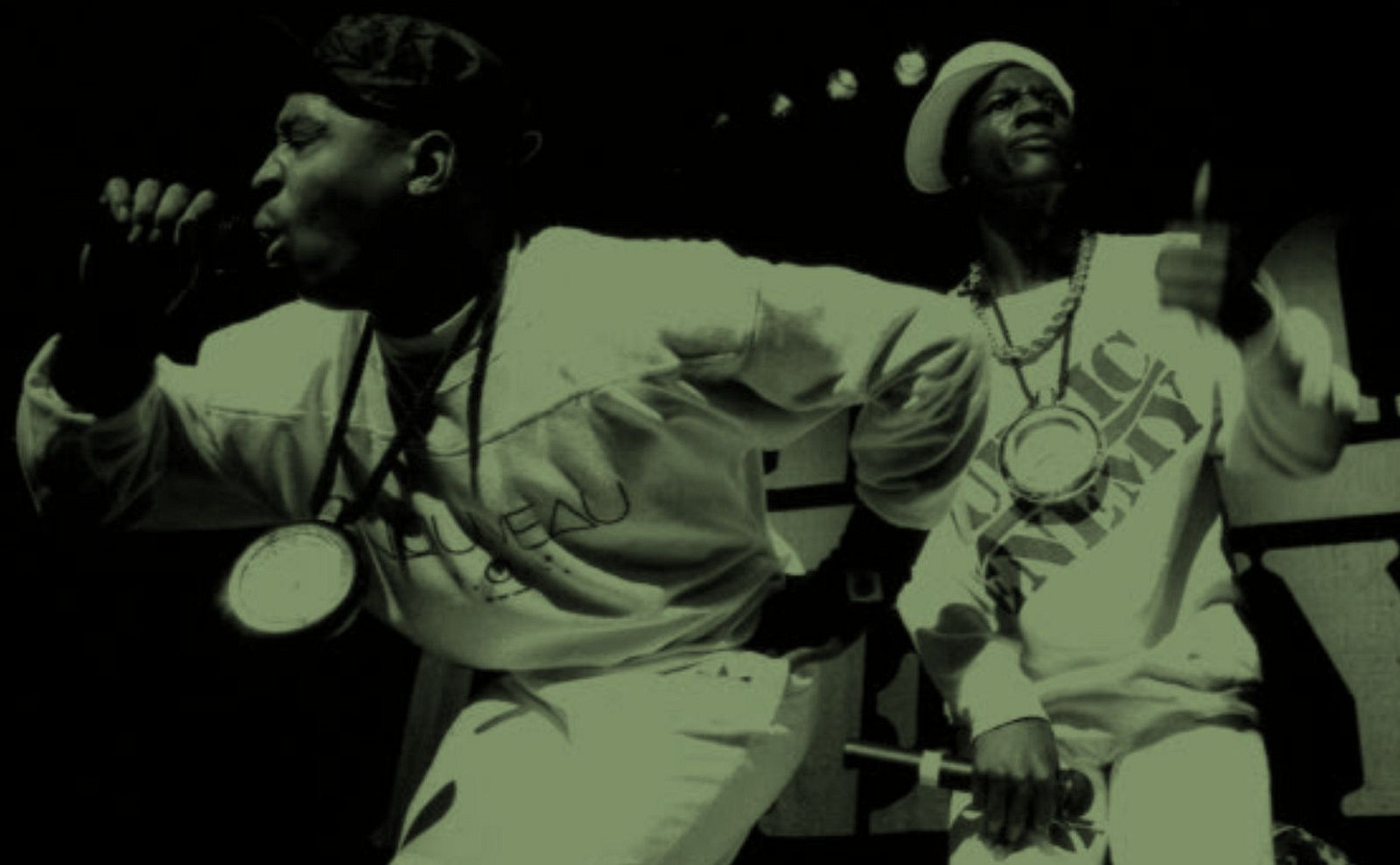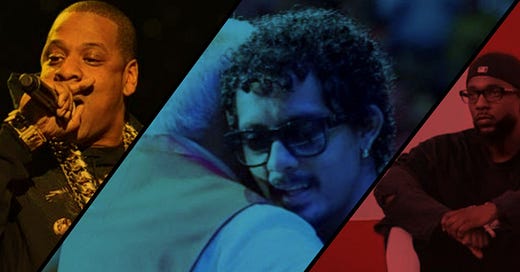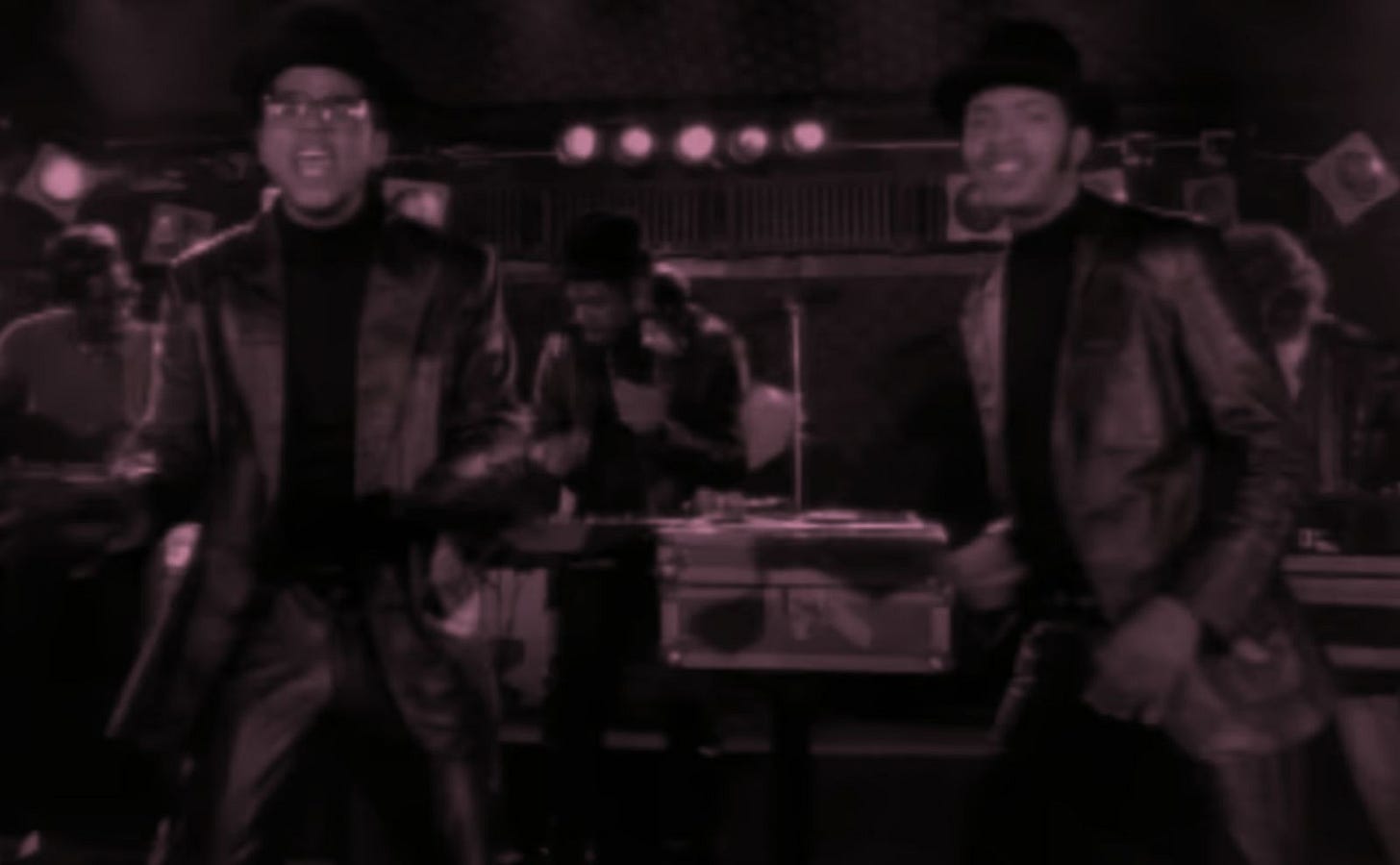Hip-Hop has become the very thing it swore to destroy.
No commercial beef, world tour or new project can revive the anti-establishment spirit of the genre that has perished for long enough to start decaying.
I think I have written enough serious and formal feature articles for my college assignments. Maybe it is time to loosen things up and talk at length about something I’m really passionate about, but nevertheless sad to see the current state of— just like the good old days.
Sooraj Cherukat, popularly known as HanuMankind, is an Indian rapper who went viral earlier this year with his hit single Big Dawgs. Today, he is in the news for a completely different reason: embracing India’s Prime Minister, Narendra Modi, at the Modi and US event held at Long Island, New York, yesterday. A quick Google search on the latter will be enough to prove why this gesture has raised eyebrows and made headlines at the same time.
Not too long ago, the news of global Hip-Hop phenomenon Kendrick Lamar headlining next year’s Superbowl Halftime Show surfaced on the Internet, leaving his massive fanbase in a frenzy. The promotional video features him seated on a Football field in front of a massive American flag. Kendrick Lamar, the quintessential conscious rapper of the 2010s, on the green field, in front of the biggest symbol of the nation whose oppressive system he once opposed, many moons ago, on his globally acclaimed magnum opus To Pimp A Butterfly (2015).
Lamar has had quite a year, honestly. Even without releasing a single full-length project this year, the rapper has had somewhat of an undying presence on the Internet. His feature on Future and Metro Boomin’s Like That had rap fans in a chokehold. Later, his tremendously heated publicly fueled almost war-like beef with fellow rapper Drake, and subsequent “victory” on the battlefield, apparently “revived the genre of Hip-Hop.”
Or that’s what you’ll find on pretty much every music and pop culture publication out there. I vehemently disagree. If you have been an avid reader of my old blog1, you’ll know why, but let me give you a hint nonetheless: it’s not because I’m a Drake fan. If anything, Kendrick had been my #1 favourite rapper for the longest time, but frankly, everything he has done throughout the year has left me thoroughly disappointed. Him coming out of his annual hibernation cave, just to make a ton of dollars off of a diabolical conflict without even sparing a thought for the current state of the world, left me dejected. Even if you turn the lousy parasocial argument of “celebrities do not always have to talk about everything” around, it is still immensely disheartening when you realise that Hip-Hop has always been built on social and political issues around the world, and Lamar- arguably the biggest political voice of our generation’s rap culture- casually opting out of it feels like a deception. And as the cherry on top, the “beef”-that existed solely as a means to make two rich and popular celebrities richer and more popular, and keep the masses distracted from what truly needs their attention- being tagged as this “ultimate Hip-Hop revival” feels like a great disservice to the genre, that has been sold out for the bag aeons ago, and will probably never live up to its former glory.
Let’s zoom out and look at the bigger picture.
All art is inherently political, but it is nevertheless gruelling, and often times impossible, to pin an entire artistic movement down to a singular political ideology. Hip-Hop, for example, has historically mainly thrived in the left sphere, exhibiting characteristics of ideologies from anarchy to communism, given its strong anti-cop and anti-establishment roots. Very few genres that came before it felt as genuine in their rage as Hip-Hop, at least for me.
For example, there was, of course, Punk-Rock that outright disobeyed the norm, defiantly rejected the mainstream corporatisation of Rock music and fiercely promoted anarchy. Still, Punk-Rock’s fury never hit the nail on the head for me. I repeat, for me. This is my blog and I give my opinions and I’m in no way saying that all Punk Rock is objectively bad or anything. But still, every Punk-Rock song I listen to leaves me thinking about why exactly these young men- predominantly white kids- are so livid towards a system which willingly platforms them. In ways more than one, Punk-Rock’s alleged anarchy also feels like an aesthetic— somewhat insincere to the political ideology. Punk-Rock musicians feel like they’re donning their anti-establishment garment to gain an air of volatile coolness. I may be wrong and I respect punk for what it is, but it has never clicked like that with me.
With Hip-Hop, it’s different. Anti-establishment and Hip-Hop have always felt like they flowed in the same vein. For every gangsta rap song, there was an anti-cop sentiment attached. And behind every anti-cop sentiment was the larger picture of institutionalised racism, embedded deeply into the American society. Zoom out a little more, and you realise that liberation of African-American people was intrinsically linked with liberation of marginalised peoples from all over the world. Hip-Hop wasn’t a gimmick— it wasn’t a bunch of wannabe-badass kids from gated communities in the suburbs who thought it was cool to carry a gun around just for the fun of it. Even in its flashiest moments adorned with vain and an unquenchable thirst for money, cars and jewellery, Hip-Hop symbolised the aspirational value of an ordinary person, trapped within the metaphorical open prison of a system that does not want them to live, forced to commit to a life they did not entirely choose— the only way to break out of which was their ironclad poetry to narrate to whoever lent an ear.

And then, this beautiful genre of resistance and revolution sold out for the bag, and the scene has never been the same since.
The music originally evolved to paint portraits of real people and handle real problems at close range — social contract, anyone? — but these days, hip-hop mainly rearranges symbolic freight on the black starliner. Containers on the container ship are taken from here to there — and never mind the fact that they may be empty containers. Keep on pushin’ and all that, but what are you pushing against? As it has become the field rather than the object, hip-hop has lost some of its pertinent sting. And then there’s the question of where hip-hop has arrived commercially, or how fast it’s departing. The music industry in general is sliding, and hip-hop is sliding maybe faster than that. The largest earners earn large, but not at the rate they once did. And everyone beneath that upper level is fading fast.
Questlove, How Hip-Hop Failed Black America (2014)
Perhaps Hip-Hop’s first betrayal came with the blatant commercialisation of the “thug” lifestyle. The street gangster culture now wasn’t something to be feared, or even admired from a distance— it became full-on invested in everyday American popular culture. Soon enough, grills, gold chains, low hanging jeans, bandanas and such were in, and the songs spelling out the harsh realities of the same genre that was “banned” publicly, was heavily censored (or as they say it, “cleaned”) to be played on the radio and MTV. It didn’t take long for the explicitness of rap culture to entirely percolate into the deepest trenches of White America, which slowly and gradually also desensitised the general public from the horrors of gang violence and police brutality. The hood was the new cool. The trap was the new it.
On the surface, it’s not too bad— after all, artists, especially those from oppressed backgrounds, should get the exposure they need and deserve. But amidst brand deals, business ventures, advertisements and endorsements, somehow, the real issues that Hip-Hop stood for got buried deep beneath this rubble of glitz. Somehow, the real voice that rap paved way for, was silenced forever. In its quest of unraveling the cruelties of the system, Hip-Hop ended up joining hands with the very system that once exploited it. The hood was caricaturised to play out as a tool of entertainment for the relatively well-off masses. Gangsters became celebrities, and slowly forgot to give back to the community that made them who they were now. Lived experiences became just another means to extract money. And somehow, a strongly anti-establishment genre became synonymous with the establishment, what with the American flag showing up on Kendrick’s Superbowl commercial, and Megan Thee Stallion endorsing Kamala Harris, a former cop.
Shawn “Jay-Z” Carter attained Forbes-certified billionaire status in 2019. The first ever billionaire of Hip-Hop. It was the perfect rags-to-riches story for countless publications to narrate for years to come. Carter grew up in Marcy Houses, Brooklyn, notorious for its drug-infested culture. He was raised by a single mother, and grew up with three older siblings. He dropped out of college to sell drugs. He claims to have shot his own brother at age twelve. And today, he is a billionaire. Perfect happy ending, right?
Wrong. From where I stand, I see this as joining forces with your oppressor, making peace with your dictator, instead of destroying it like you intended to. How can the man who has supposedly suffered at the hands of capitalism- the system that has started it all- become a capitalist himself? “But it’s his own money, he has worked hard for it!” Where do we even draw the line? Do celebrities even need all the wealth they have hoarded? Do you guys really think that the empire Jay-Z has amassed so far has solely come out of his music?
Maybe we are going off on a different tangent from here, but defending celebrities using the artist metric is delusional. If your celebrities are indeed such tortured poets, why are they still flying around in private jets? Why not reject celebrity culture entirely? Out of all the trending names we have right now, Chappell Roan pretty much seems to be the only person actively rejecting celebrity culture right now. If she can openly criticise the Government, the two-party system and point out the hypocrisy of the Democrats, why can’t HanuMankind let go off the golden opportunity to embrace Modi ji? Or better, why can’t Kendrick Lamar speak up for Palestine? Why has our generation’s biggest political rap artist become such a money-minded puppet all of a sudden?
The whole “Hip-Hop is dead” discourse sounds defeatist and tiring, but in a way it’s true. Even if you argue your way out of it, you cannot deny that the genre has significantly diluted its once-anti-establishment stance in the face of commercialisation. Of course I can mention the token political rap artists (the same old Lowkey, the same Ghais Guevara) time and time again, but will that undo the harm? Will that bring back an entire culture of political resistance that has ceased to exist ever since? Will that erase the effect of neo-liberalism that has spread its jaws over not only Hip-Hop, but pretty much every aspect of society? I highly doubt that. It is high time we finally admitted that Hip-Hop isn’t the genre it started out as, and it has mainly changed for the worse. The death of Hip-Hop’s anti-establishment and revolutionary roots has been a slow, painful one.






I was hoping to read a bit about the context in which Hanumankind embraced the Prime Minister. And maybe a bit about how Sooraj’s rap fit into indian rap scene and how american hip-hop has now grown beyond america.
i think for me case in point would be if kendrick drops a new album and it still got drake disses on it. i don't think it will, but who knows